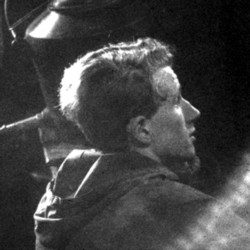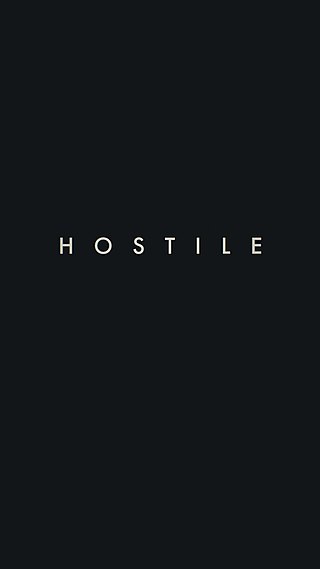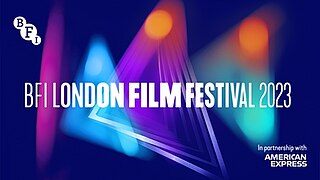
The British Independent Film Awards (BIFA) is an organisation that celebrates, supports, and promotes British independent cinema and film-making talent in the United Kingdom. Nominations for the annual awards ceremony are announced in early November, with the ceremony itself taking place in early December.

The British Film Institute (BFI) is a film and television charitable organisation which promotes and preserves film-making and television in the United Kingdom. The BFI uses funds provided by the National Lottery to encourage film production, distribution, and education. It is sponsored by the Department for Culture, Media and Sport, and partially funded under the British Film Institute Act 1949.

Nicholas Broomfield is an English documentary film director. His self-reflective style has been regarded as influential to many later filmmakers. In the early 21st century, he began to use non-actors in scripted works, which he calls "Direct Cinema". His output ranges from studies of entertainers to political works such as examinations of South Africa before and after the end of apartheid and the rise of the black-majority government of Nelson Mandela and the African National Congress party.

Southbank Centre is a complex of artistic venues in London, England, on the South Bank of the River Thames.

BFI Flare: London LGBTIQ+ Film Festival, formerly known as the London Lesbian and Gay Film Festival (LLGFF), is the biggest LGBTIQ+ film festival in Europe. It takes place every spring in London, England. Organised and run by the British Film Institute, all BFI Flare screenings take place in the BFI Southbank.

The BFI London Film Festival is an annual film festival held in London, England, in collaboration with the British Film Institute. The festival runs for two weeks every October. In 2016, the BFI estimated that around 240 feature films and 150 short films from more than 70 countries are screened at the festival each year.
Sir Horace Shango Ové was a Trinidadian-born British filmmaker, photographer, painter and writer based in London, England. One of the leading black independent filmmakers to emerge in Britain in the post-war period, Ové was the first black British filmmaker to direct a feature-length film, Pressure (1976). In its retrospective documentary 100 Years of Cinema, the British Film Institute (BFI) declared: "Horace Ové is undoubtedly a pioneer in Black British history and his work provides a perspective on the Black experience in Britain."
Free Cinema was a documentary film movement that emerged in the United Kingdom in the mid-1950s. The term referred to an absence of propagandised intent or deliberate box office appeal. Co-founded by Lindsay Anderson with Karel Reisz, Tony Richardson and Lorenza Mazzetti, the movement began with a programme of three short films at the National Film Theatre, London on 5 February 1956. The programme was such a success that five more programmes appeared under the ‘Free Cinema’ banner before the founders decided to end the series. The last event was held in March 1959. Three of the screenings consisted of work from overseas filmmakers.

Michael Kenneth Christian Grigsby was an English documentary filmmaker.

Delphinium: A Childhood Portrait of Derek Jarman is a 2009 short film based on the early years, work, and legacy of British artist and filmmaker Derek Jarman. The film was written and directed by Matthew Mishory and produced by Iconoclastic Features. It was executive produced by Andreas Andrea. Keith Collins, Jarman's surviving muse, participated in the making of the film. Jonathan Caouette served as a creative advisor. It is the first narrative work about the life of Derek Jarman.

The UK Jewish Film Festival is an annual film festival dedicated to world cinema that explores Jewish life, history and culture worldwide. It was founded in 1997 and takes place in November, in London and in other cities in the United Kingdom.

BFI Southbank is the leading repertory cinema in the UK, specialising in seasons of classic, independent and non-English language films.
Raymond Stross was a British film producer.
German Concentration Camps Factual Survey is the official British documentary film on the Nazi concentration camps, based on footage shot by the Allied forces in 1945.

James Scott is a British filmmaker, painter, draughtsman and printmaker.

The Afterlight is a 2021 British experimental supercut art film directed and assembled by Charlie Shackleton.

Hostile is a 2022 documentary film directed by Sonita Gale. The film explores the UK government's 'hostile environment' immigration policy, first articulated in 2012 under the Cameron administration. The film premiered on 29 October 2021 at the Raindance Film Festival.

The 66th BFI London Film Festival was a film festival that took place from 5–16 October 2022. British-American producer Tanya Seghatchian served as jury president. Marie Kreutzer's Corsage won the Best Film Award.

The 67th BFI London Film Festival was a film festival that took place from 4–15 October 2023. The competition films were announced on 29 August 2023 while the films for the galas and the strands were revealed on 31 August 2023. The juries for the various sections of the festival were announced on 19 September 2023.
The 68th BFI London Film Festival will take place from 9–20 October 2024. The competition films were announced on 29 August 2024 while the films for the galas and the strands were revealed on 4 September 2024.














